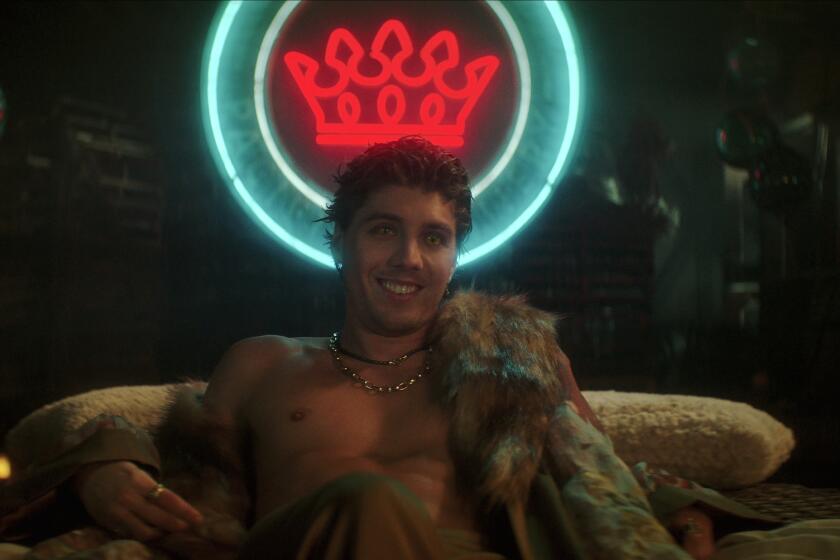Cash on the cyberspace barrel
NEVERDIE made a bundle from selling off his spaceships. A cool $19,000 for the pair.
That’s real live Federal Reserve-backed American dollars, hear? Nineteen thousand of them.
Problem is, nowadays when he needs to get up to his asteroid, he has to wait for a taxi like all the rest of the proles. For the most famous man in the universe, this is simply unbefitting.
That would be Entropia Universe, mind you, not the real one. Entropia is a massive online world similar to Sony’s EverQuest or Blizzard Entertainment’s World of Warcraft, the “immersive” role-playing games where the most devoted players spend months slaying monsters and gathering magical trinkets.
And for what? A few nerdly bragging rights or, if you ruthlessly auction off your beloved character, soup to nuts, maybe enough scratch for a tank of gas?
Forget that. If playing videogames for 10 hours a day means losing your job, your family and your self-respect, you should at least be getting paid to do it.
And that’s the beauty of Entropia, where dung, sweatshirts and tracts of ranchland have a real cash value, and enterprising players can accrue assets worth hundreds of thousands, or even millions of dollars.
Back on the planet Calypso, NeverDie has located a spaceship pilot and is shelling out three bucks for tickets. It’s like Donald Trump buying a couple of filthy bus tokens.
“I really miss my ships,” he says again.
NeverDie is the in-game character of Jon Jacobs, charismatic British filmmaker, musician and entrepreneur who is well on the way to becoming the world’s first cyber-superstar — “the Douglas Fairbanks of virtual reality,” as he likes to put it.
“This is the golden era of virtual worlds,” he explains. “They’re going to continue to explode dramatically.”
And though he talks a big game, you can’t accuse him of being a simple hype-peddler. He’s put too much real money where his virtual mouth is.
NeverDie first made headlines in 2005 when he paid the still unbelievable sum of $100,000 for the rights to an in-game asteroid being auctioned off by MindArk, the Swedish company that owns Entropia. Jacobs named the asteroid Club NeverDie, and as its centerpiece, he built a lavish nightclub of the same name.
Since then, NeverDie has ruled over his space resort like a cowboy king (he would die before appearing sans his Stetson and jean jacket). A promoter by nature, Jacobs is always organizing virtual sporting events, meet and greets, monster hunts and good old-fashioned pretend clubbing.
Besides his asteroid, which contains the club, space docks, 20 massive bio-domes for monster hunting, a sports arena and a shopping mall, Jacobs owns two pieces of real estate on the game’s main planet, Calypso.
Owning property in Entropia gives you exclusive taxation rights, so you get a cut every time a player buys an item in your mall, scores loot off a monster in your forest or strikes a vein of ore in your mines.
If you’re Jon “NeverDie” Jacobs, all those cuts add up to $20,000 a month — more than enough to support himself, his wife, two children and a nice life in Miami Beach.
And that $100,000 asteroid? On today’s market, it’d sell for at least a million, maybe two.
Courtesy repeat: A computer-game asteroid is worth more than $1 million.
By all indications, the Entropia economy is booming. MindArk says more than $1 million in assets are bought or bartered for in the game every day, with the rarest, most valuable items frequently fetching tens of thousands of dollars each.
Rueful stories of “I sold it too early” abound. In his early playing days, Jacobs bought a healing kit for $80 — which seemed like a lot then. Today it would get snapped up for $27,000.
How make-believe stuff can be worth so much money is, of course, the $64,000 question.
As “virtual economies” have proliferated around the Internet — one report said the aggregate GDP of all online virtual economies outranked that of the poorest real-world countries — researchers and policy analysts have begun to take note.
Vili Lehdonvirta of the Helsinki Institute for Information Technology runs a website that tracks research on in-game investing. He’s familiar with the head scratching but insists there’s no real mystery.
“Virtual items are bought and valued for exactly the same reasons as many physical commodities,” he said. And that boils down to scarcity. So, he continued, even though a defining feature of cyberspace has been the ability to make unlimited copies of almost anything, it turns out that the world might not be ready for such excess.
“People actually seem to prefer systems with artificial scarcity,” said Lehdonvirta, “as opposed to the idea of ‘digital abundance,’ where everyone can have everything, but nothing has any meaning anymore.”
It’s exactly this faux-scarcity that is Entropia’s secret to success. MindArk employs a team of “balancing managers” to make sure the game’s economy stays viable, fair and entertaining.
For example, if you could pick up a $35,000 blast rifle every time you killed a rabbit, the economy would bloat and everything would become worthless. So the developers have to make these items extremely rare by lowering their “drop rate” to near zero. At the same time, though, they’ve got to keep it so monsters drop moderately valuable items often enough to keep players interested.
Getting this balance right has proved tricky. Just try being an Entropia newbie for a few hours. You arrive in the game with no money, tools or weapons of any kind. About the only way you can improve your lot is by collecting “sweat” from animals, an intensely boring, dangerous and unprofitable undertaking. Over the course of an hour of sweat gathering, Web Scout was able to gather about 35 bottles of sweat. On Entropia’s open market, sweat bottles sell in units of a thousand. The going rate? Seven cents.
Most players skip this hard labor by depositing real money, then using it to buy weapons and tools that make earning cash easier. But hunting and mining in Entropia is like playing a slot machine: It costs money every time, and hitting a real jackpot is rare.
Finally up on the asteroid, NeverDie pays a visit to a couple of his high-powered buddies — Entropia’s billionaire boys club. They’re in Biodome 17, hunting daspletor stalkers — giant velociraptor-like creatures that on a good day might drop $34,000 worth of loot.
One of the hunters is Jason Peterson — codename NeoMaven. He’s a former professional poker player and domain name trader who’s made a killing on Entropia real estate. Alongside him is Sebuh Semerciyan — PornStar — a 30-year-old chess teacher from Michigan who’s cashed out $125,000. They’re hunting for fun. It’s nice to take down a baddie and hope you hit the triple sevens, but they know the deal. No one makes a fortune on the slots. The real money’s in speculation.
“Buy low, sell high,” Semerciyan said, reached by phone.
Peterson, also by phone, agreed.
“Just like the stock market.”
*
david.sarno@latimes.com
More to Read
The biggest entertainment stories
Get our big stories about Hollywood, film, television, music, arts, culture and more right in your inbox as soon as they publish.
You may occasionally receive promotional content from the Los Angeles Times.





